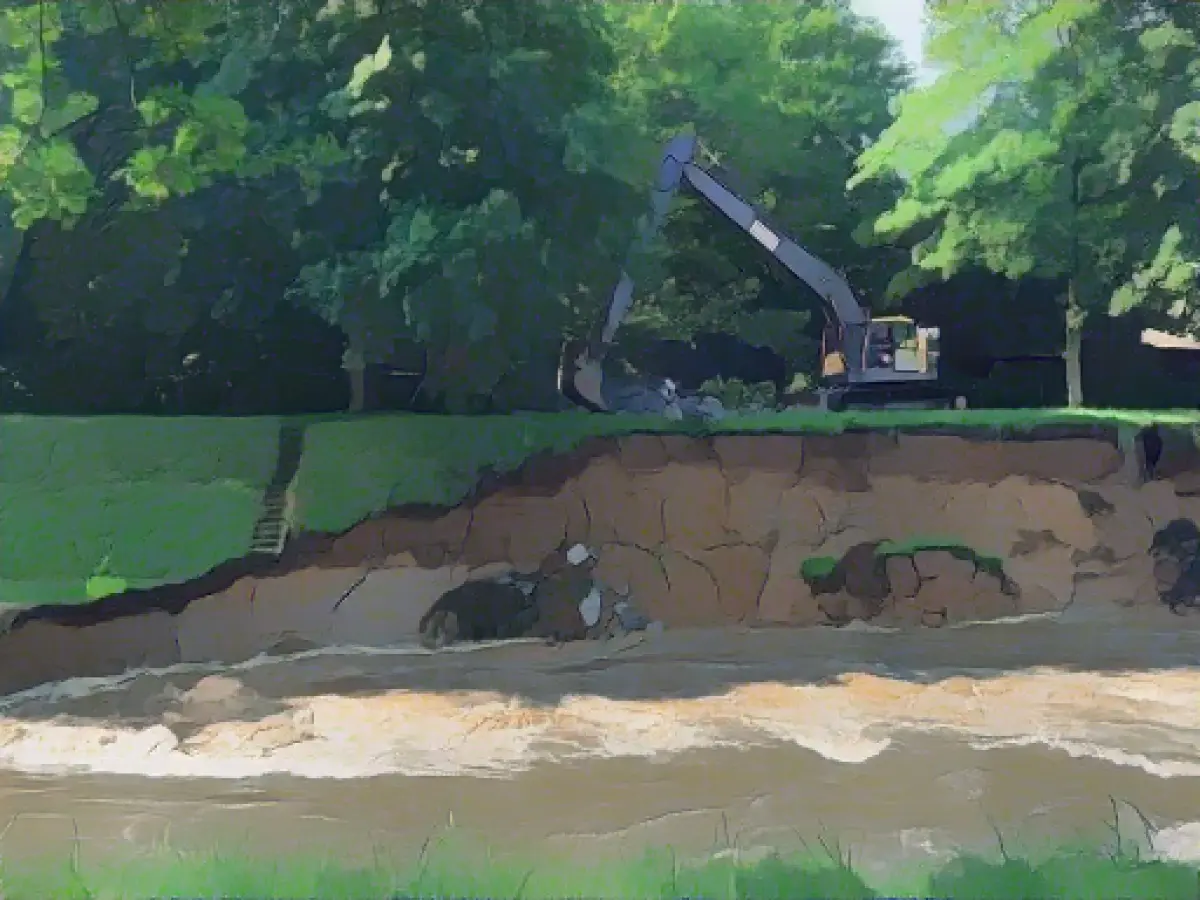Dyke Renovations: Delays and Solutions in North Rhine-Westphalia
Struggles with staffing, ammunition remnants, and resident complaints have put a pinch on the urgently-needed dyke renovations sparking concerns in North Rhine-Westphalia. As of a recent review, only six projects out of the 44 planned renovations have been completed.
The Ministry of Environment in North Rhine-Westphalia (NRW) warned of a real need for action in at least half of the dyke kilometers, boasting around 530 kilometers of state-area river dykes and protective walls. In 2014, a "dyke renovation roadmap" was drawn up, listing 41 necessary renovation projects. Since then, three additions have been made, and the six completed renovation projects include the expansion of dykes near Rees and Emmerich on the Lower Rhine.
Fortunately, construction is ongoing on four more dykes in NRW, including projects in Uedesheim near Düsseldorf, and other sites on the Lower Rhine. However, planning is still in motion for renovations in Düsseldorf, Monheim, and a backwater dyke on the Itter. The report indicates 20 ongoing measures with no application documents submitted, and seven locations under evaluation to join the renovation initiative.
Financing for these projects comes from budget funds or the joint task "Improvement of the agricultural structure and coastal protection," with 60% of funding coming from the federal government and 40% from the state. However, the lack of a robust environmental policy may hinder progress, as highlighted by NRW Environment Minister Oliver Krischer, who spoke of this need for action back in July.
With climate change adding pressure, advanced materials, technological innovations—like digital tools and smart sensors—and collaborative approaches are essential tools for addressing the challenges ahead. And despite the delays, finding adequate funding mechanisms and regulatory frameworks proves vital to addressing the long-term vulnerability of NRW's dyke infrastructure.








